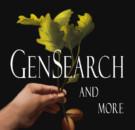April 28, 2016GenSearch and More
Knowing what an ancestor did for a living is frequently a source of pride for descendants and an amazing feat for the time period they lived in. A study of history reveals typical tradesmen, tools used, and resulting products. Placing ancestors in an occupation along with historical information can yield interesting facts about their livelihood.
Think about it – everybody needs basic food, clothing and shelter. Starting out with high hopes in a new country or purchasing new land doesn’t provide those necessities. They have to be produced. Hence, occupations began hundreds of years ago and still flourish today. I have listed some helps in finding ancestral occupations below.
Occupations and employment listed in U.S. Federal Census schedules:
- the 1820 Census schedules have categories for the number of persons in a household that are engaged in agriculture, commerce, and manufacture
- the 1840 Census schedules have categories for the number of persons in a household that are engaged in agriculture, commerce, manufacture; also the number of persons in a household that are employed in mining, navigation of canals/lakes/rivers, navigation of the ocean, learned professions/engineers, and the number of scholars
- the 1850 Census and 1860 Census schedules note the profession, occupation or trade of each male person over 15 years of age in each household
- the 1870 Census and 1880 Census schedules note the profession, occupation or trade of male and female persons in each household
- the 1900 Census schedules note the occupation, trade, or profession of each person in the household 10+ years of age
- the census schedules for 1910-1920-1930-1940 note the trade or profession of each person in the household; the industry or business is also noted
From https://www.familysearch.org, click on SEARCH, and then WIKI. In the WIKI, a KEYWORD search for Alabama Occupations, North Carolina Occupations, Tennessee Occupations or Virginia Occupations results in updated information about occupations in these states. There are pages for other states as well. The WIKI pages discuss child labor registers, books of collected biographies for various occupations such as, lawyers/physicians/watchmakers/postmasters, and apprentices or indentured servants.
For a look at occupations in 1860, search www.learnnc.org.
Professional trade organizations compile lists of members. Large companies preserve information about their employees. Employees reaching milestone years or accomplishments often have certificates that verify service. These can usually be found among personal papers of an individual or in a family collection that has been passed down through several generations. For community leaders, a local historical society or public library may have personal papers in a vertical file.
The Card Catalog at www.ancestry.com has collections for City Directories, as well as Professional & Organizational Directories. Even School Lists & Yearbooks may show a field of education that led to a life-long occupation.
Good luck in finding an ancestor’s occupation. As always,
Give Genealogy a Place in Your Heart!
©2016 Sharon D. Monson
